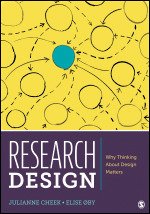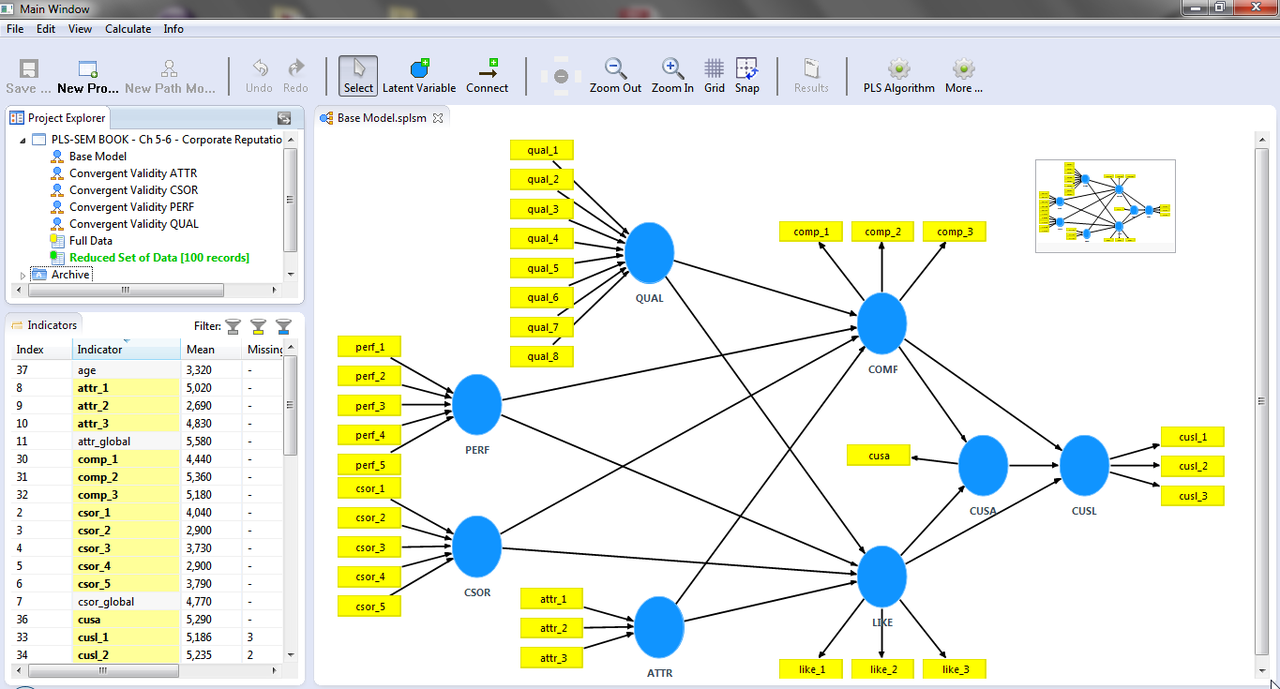Thinking About Research Design with Julianne Cheek and Elise Øby
By Janet Salmons, PhD Manager, Sage Research Methods Community
We need to think about research before we design and conduct it.
Julianne Cheek and Elise Øby co-authored the book Research Design: Why Thinking About Design Matters. In the book description they observe:
Designing research is about making decisions to transform an idea into a plan that can provide answers to a research problem or question. Thinking about, and then making these decisions results in the research design – the plan that will be followed to conduct the research and answer the question.
They sat down with me to discuss the decision-making central to designing and conducting research. In this series of recordings they walk through important points covered in each chapter. The videos featured here highlight:
Chapter 1 – Research Design: What You Need to Think About and Why
Chapter 2 – Ethical Issues in Research Design
and
Chapter 3 – Developing Your Research Questions
Chapters 1 and 2 are available to download. Whether you read the chapters or simply listen to these conversations, you have a chance to learn important steps in the design process for scholarly research.
Chapter 1 – Research Design: What You Need to Think About and Why

Use the code COMMUNIT24 for 25% off through December 31, 2024 when you purchase the book from Sage.
Chapter 2 – Ethical Issues in Research Design
Chapter 3 – Developing Your Research Questions
Sage Research Methods Community Posts about research design
We’re excited to share that Research Methods - part of the 'Research Skills Toolkit' - has been updated to reflect today’s research landscape. Discover brand new content on Gen AI, Data Literacy and more – designed to support researchers with the skills they need in their careers.
There are some perennial challenges to doing a research project that all of us have faced: formulating a research question, wrestling with paradigmatic assumptions, keeping on track of a multi-year project. The Essential Guide to Doing Your Research Project has been helping students (and supervisors) for more than 20 years. But in a post-pandemic world with the transformations being wrought by artificial intelligence, datafication, and the rise and fall of social media platforms, there are new challenges facing researchers.
We are thrilled to announce the launch of the Research Design and Planning video collection, a powerful new resource designed to equip researchers with the essential tools and insights to craft high-impact research projects. Whether you're a student, academic, or professional researcher, this collection is your go-to guide for mastering the art and science of research design.
Guest post from Christopher Lamont and Mieczyslaw P Boduszynski , authors of Research Methods in Politics and International Relations, on the importance of methodology in PIR research.
While some types of online research use communication tools to interact with remote participants, digital methods use online approaches to study online phenomena.
This collection of open access articles offers multidisciplinary examples, guidance, and perspectives about online experimental research.
How do you know online participants are who they say they are? This collection of articles explores the issues - and solutions.
The wealth of material available online is irresistible to social researchers who are trying to understand contemporary experiences, perspectives, and events. The ethical collection and -use of such material is anything but straightforward. Find open-access articles that explore different approaches.
How to protect data when recording interviews on videoconference platforms.
The public is exposed to news stories about bad academic research behavior online. How can we counter this narrative and build credibility?
There are lots of questions to consider when using videoconference platforms for scholarly interviews.
From the moment social media platforms began to welcome user-generated content, researchers have looked for ways to study it. Learn more with open-access articles about social media platforms.
Julianne Cheek and Elise Øby, co-authors of the book Research Design: Why Thinking About Design Matters, discuss how to make decisions about what qualitative, quantitative, or mixed methods data to collect and how to do so. This post is the third of a three-part series of posts that feature ten author interviews.
What if we didn’t have to go fast to do our academic work and research? What if we could embrace the spaces and places around us to slow down? What could that mean for us personally, professionally, and in how we relate to social justice and ecological issues?
Julianne Cheek and Elise Øby, co-authors of the book Research Design: Why Thinking About Design Matters, discuss how to make decisions about methodology in this collection of video interviews. This post is the second of a three-part series of posts that feature ten author interviews.
Chart research directions that take you to the roots of the problem. Learn more in this guest post from Dr. Donna Mertens.
We need to think about research before we design and conduct it.
Julianne Cheek and Elise Øby, co-authors of the book Research Design: Why Thinking About Design Matters, discuss the first three chapters in these video interviews:
Chapter 1 – Research Design: What You Need to Think About and Why
Chapter 2 – Ethical Issues in Research Design
Chapter 3 – Developing Your Research Questions
The process for researching literature on research methods is somewhat different from the process used for researching literature about the topic, problem, or questions. What should we keep in mind when selecting methods literature?
Partial least squares structural equation modeling (PLS-SEM) enables researchers to model and estimate complex cause-effects relationship models
How do researchers make design decisions about the methodology and methods?
In-depth comprehension and interpretation of social events, human experiences, and behaviours are often the main goals of qualitative researchers. Learn about the primary concerns of qualitative researchers in this guest post by Pinaki Burman.
Research can often feel like an overwhelming process. If you are a novice researcher, there can be a lot of new terminology to learn too. This is where research road mapping can help!
These difficult times present challenges for researchers. Find five original posts by Robert Kozinets about using Netnography to study sensitive topics.
Looking back at 2023, find all posts here!
We explored stages of a research project, from concept to publication. In each quarter we focused on one part of the process. In this recap for the year you will find original guest posts, interviews, curated collections of open-access resources, recordings from webinars or roundtable discussions, and instructional resources.
Methods Film Fest!
We can read what they write, but what do researchers say? What are they thinking about, what are they exploring, what insights do they share about methodologies, methods, and approaches? In 2023 Methodspace produced 32 videos, and you can find them all in this post!
Let’s begin this quarter’s exploration of research design by thinking about the research problem or topic. Who decides what to study?
Learn how to design and defend your PhD research with the Idea Puzzle software from Ricardo Morais.
Dr. Stephen Gorard defines and explains randomness in a research context.
Have you seen Dr. Gorard use card tricks to teach research methods? Watch this video!






























Informed consent is the term given to the agreement between researcher and participant. In this post Janet Salmons offers suggestions about the intersections of the Internet communications, ethics and participants.